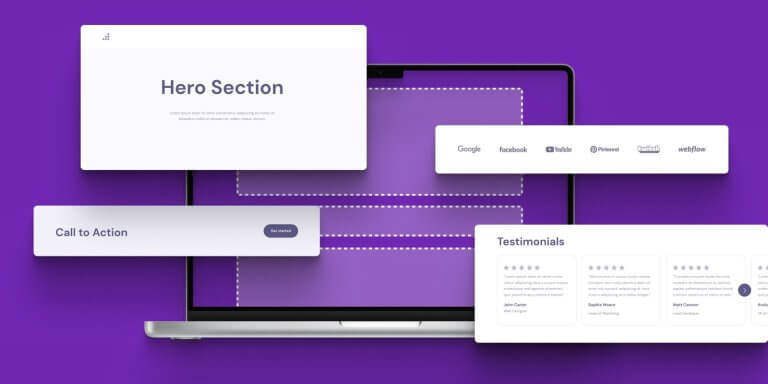Table of Contents
Want to invest in ecommerce and start selling online courses, but not sure where to start? Before you do anything else, know this: you’ll need a good ecommerce education platform.
In this article, we’ll go over everything you need to know and also explore some great platform options you can choose from.
First, here’s a quick comparison of the top 11 ecommerce education platforms in 2025:
Why course creators need ecommerce training and selling tools
If you’ve got a brilliant course idea, congrats—that’s the first part of the equation done. The second? Finding a platform that will not only bring it to life but will help you drive sales, too.
With the elearning industry set to hit$354.71 billion in 2025, the demand for flexible learning solutions is high, to say the least. And to tap into this knowledge economy, you need to make sure you choose an ecommerce platform for online courses that fits your situation.

Many people search for ecommerce classes online to build skills or grow a business. If you’re on the other side—creating and selling that kind of training—you need tools that support not just course creation but also the business side of things. Platforms built for ecommerce online training can help you do both.
An ecommerce learning platform can help you do the following.
Drive more revenue through online course sales
When your platform supports things like bundles and affiliate marketing, you open the door to more than just single-course sales. You can increase revenue per learner and keep your course catalog working for you over time.
These features help drive sales by making your offerings more attractive and accessible, while also encouraging repeat customers who return for additional content or take advantage of subscription models.
Simplify the buying experience for learners
A confusing checkout process can kill sales. The right features let learners purchase a course quickly with clear pricing and minimal clicks. Features like saved payment info and mobile-friendly pages make it easier for them to move through the payment funnel.
Scale your training business globally
To grow beyond your local online community, your platform needs to handle multiple currencies, languages, and tax rules. LMS platforms with ecommerce capability can make it easier to sell internationally without making your admin experience more complicated.
💡Still need that brilliant idea? Here are 183 profitable online course ideas to get you started.
What to look for in ecommerce solutions for educational services
The tools you use to sell your online courses need to support more than just hosting content. You need reliable ways to support learners who are buying through avenues like social media marketing and using different devices.
Here’s what to look for in your ecommerce course creation platform.
Flexible and secure payment options
Look for a platform that supports multiple ways to charge for access, single payment, payment plans, or subscriptions. You’ll also want to make sure the software has built-in checkout options that keep the process secure and straightforward for learners.
Subscription and payment plan support
Monthly access models or drip-fed content can help build long-term revenue. The right platform will let you control how and when learners are billed and automatically grant or revoke access based on payment status.
Integrated payment gateways
PayPal and Stripe are the most common, but you may also need support for other processors depending on your location or audience. You want something that works out of the box, meaning no extra setup and no managing plugins.
Easy refund management
Refunds happen. And when they do, you want them to go as smoothly as possible. Check that the platform lets you issue them with just a few clicks and tracks them alongside your sales data. This saves time and helps you stay organized when your audience scales.
Cart abandonment reminders
Sometimes people get to your checkout and pause. Maybe they got distracted or wanted to think about it. A simple reminder email can bring them back. This isn’t a flashy feature, but it’s one of the most effective.
Detailed sales and learner analytics
Sales data is only useful if it helps you make better decisions by providing insights from analytics. Look for platforms that show you which courses convert well and where learners tend to drop off. Knowledge like this is what helps you improve your offerings over time.
Multi-currency and international payments
If you’re reaching a global audience and selling to learners around the world, don’t make them jump through hoops to pay. The ability to charge in local currencies and handle international cards is one of the easiest ways to grow without changing your content.
Built-in tax calculation and invoicing
While it’s never a replacement for a certified accountant, some online learning platforms handle calculating VAT or sales tax and generating invoices automatically. It might not sound like a big deal right now, but this feature will save you in terms of cost and headaches as you scale.
Top 11 online training ecommerce platforms
These platforms allow you to create an online business, sell digital downloads, offer digital products like courses or templates, and build your brand presence.
They combine learning tools with the ecommerce features you need to run a real ecommerce business, like payments and analytics, and help you master ecommerce fundamentals and build essential skills needed for online selling.
1. LearnWorlds
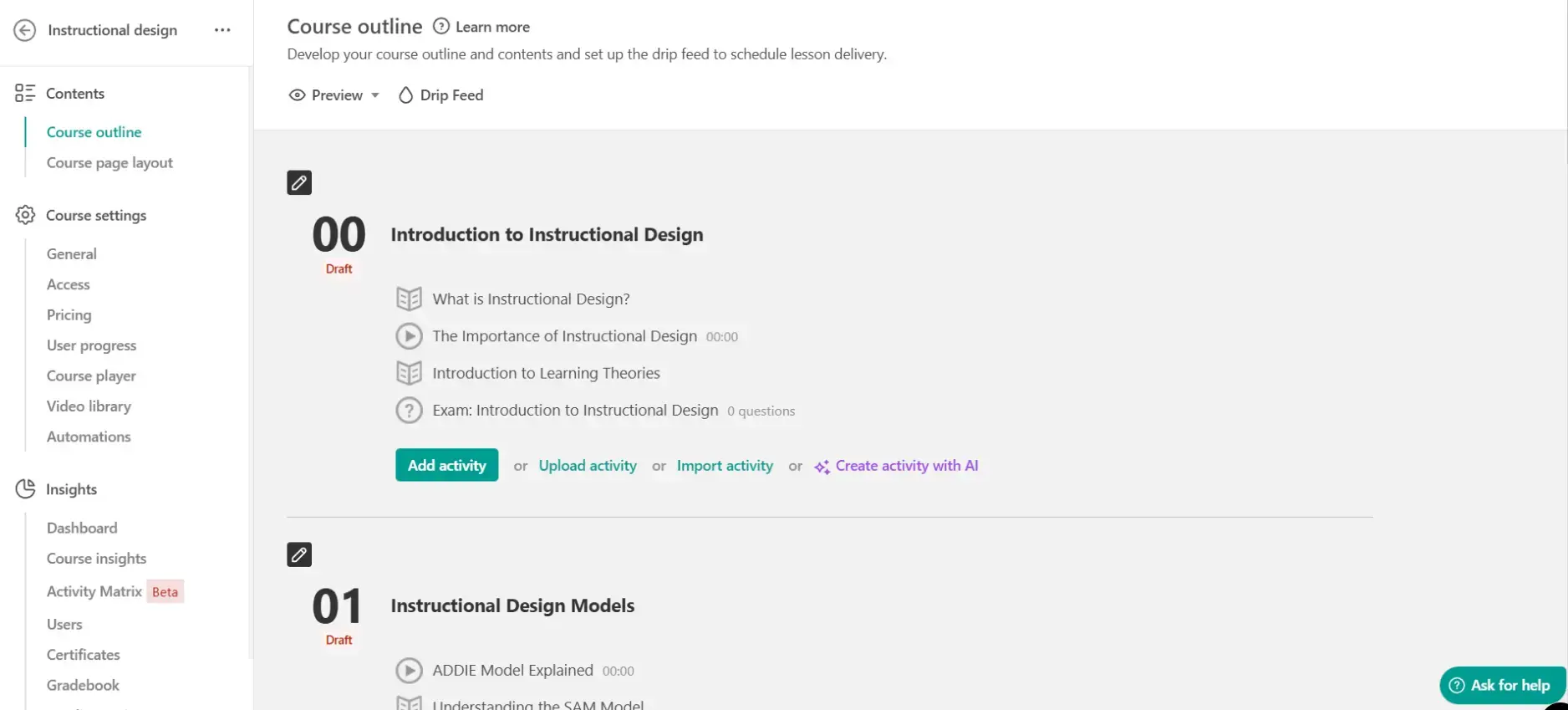
LearnWorlds is a strong choice for course creators who want branded, interactive learning paired with built-in ecommerce tools. This LMS, or learning management system, supports global payments and gives you detailed sales reporting, making it a great option for scaling.
Best for: Branded courses with international reach
Key features: AI Assistant, Mobile App Builder, no-code Website Builder, interactive video, multi-currency, tax handling, affiliate support, advanced customization, in-depth reporting, support for advertising and marketing campaigns to promote courses, SCORM-compliant.
Use cases:
Pricing: Paid plans start at $29/month
*Pricing retrieved from LearnWorlds in May 2025.
2. Thinkific
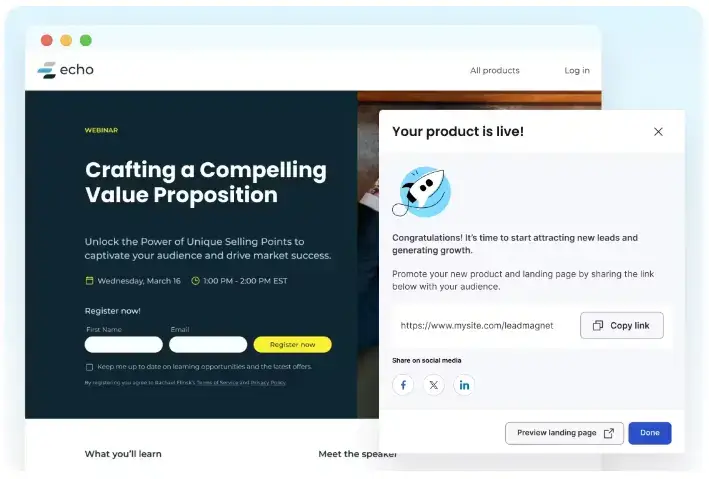
This ecommerce LMS is simple to set up and built for all course sellers, no matter their expertise.Thinkific offers core ecommerce basics like coupons and payment plans, and even affiliate tracking without requiring outside integrations.
Best for: Getting started quickly with minimal setup
Key features: Custom checkout, bundles, affiliate tracking, email tools, and tools to engage learners
Use cases:
Pricing: Starts at $36/month with the basic plan
*Pricing retrieved from nThinkific in May 2025.
3. Absorb LMS
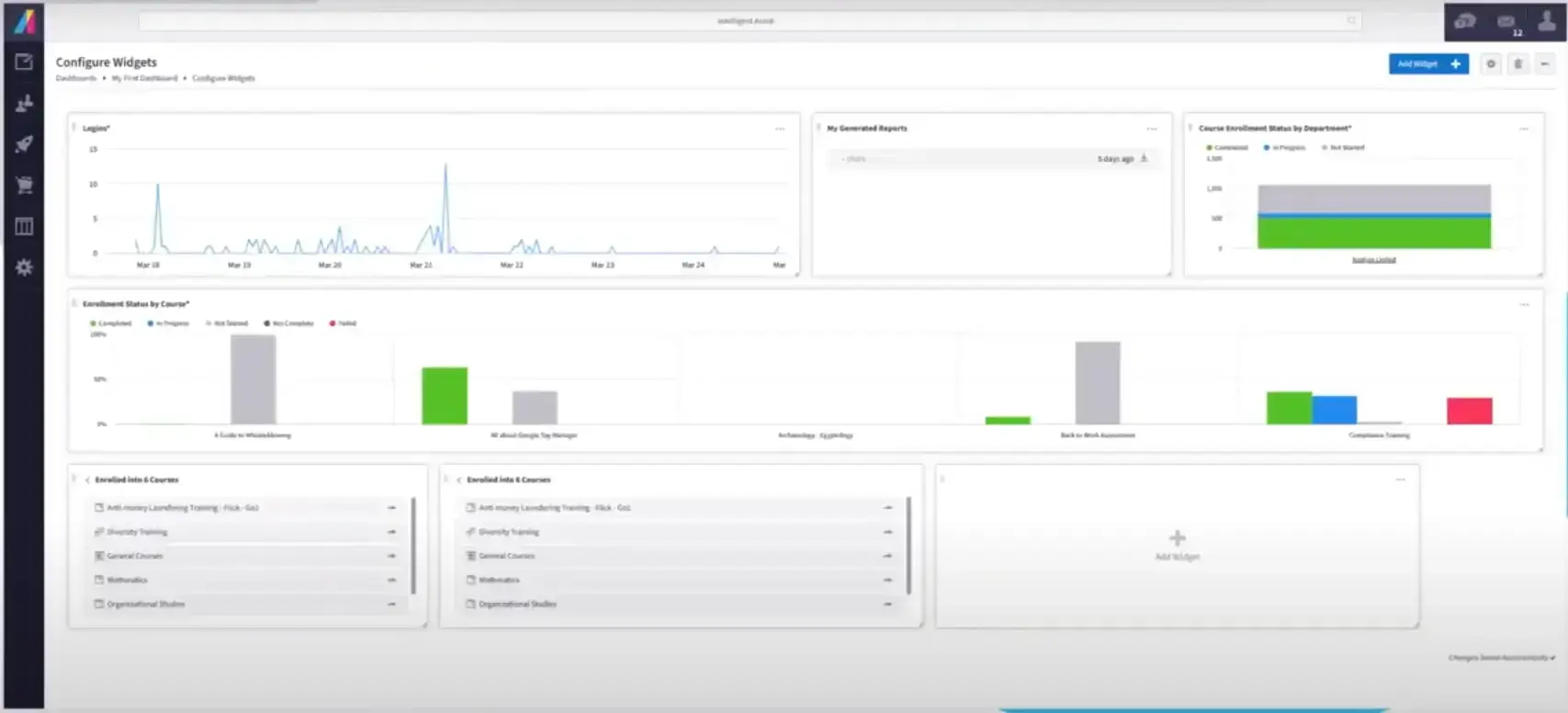
Absorb LMS is built for organizations that deliver both internal and external training. This means it’s good for both customers and training people internally, like employees. Absorb includes a full ecommerce engine with support for portals and sales reporting.
Best for: Selling training alongside internal programs
Features: Multi-portal support, learner analytics, custom branding, invoicing
Use cases:
Pricing: Custom pricing available upon request
*Pricing retrieved from Absorb LMS in May 2025.
4. Docebo
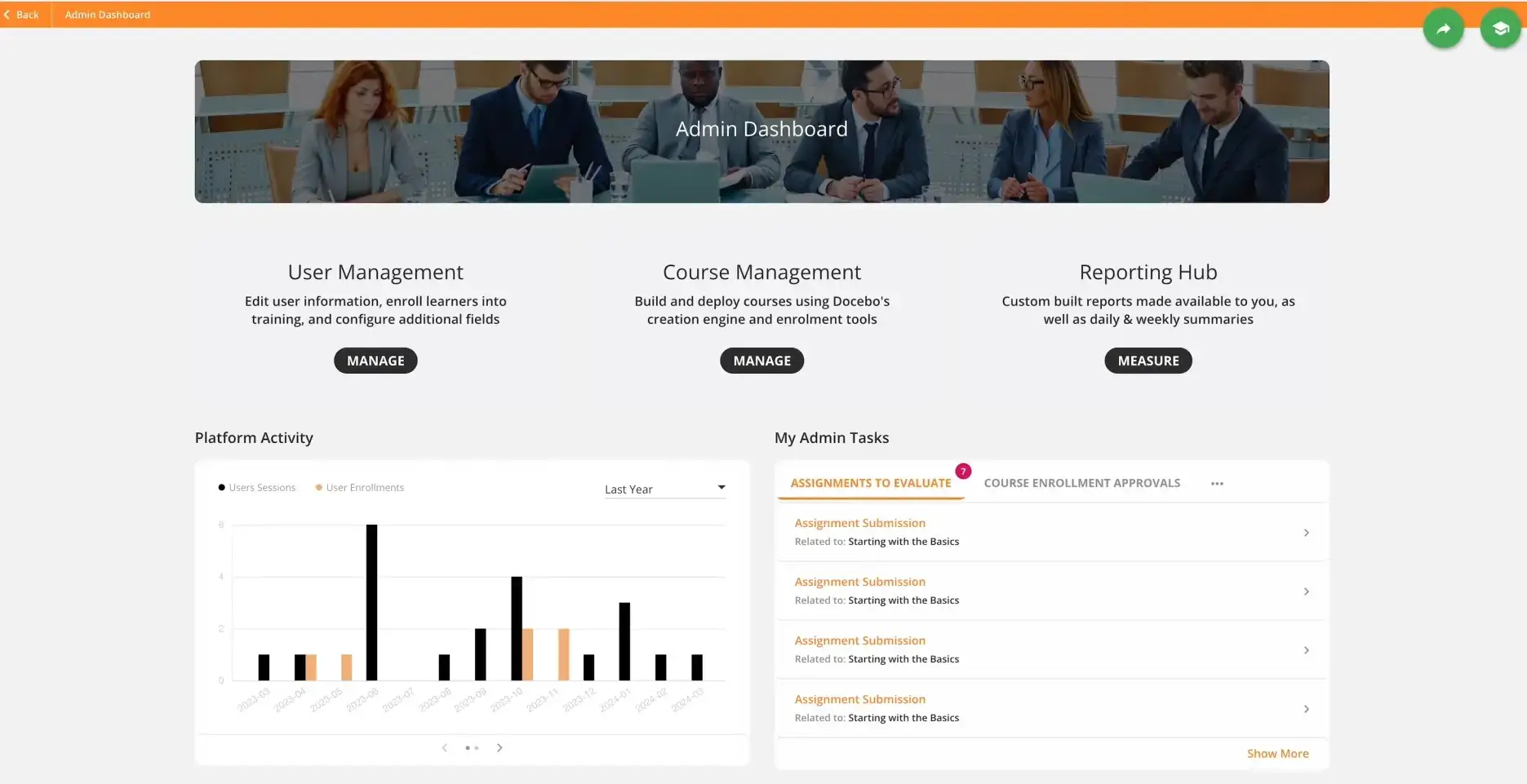
Docebo is an enterprise LMS platform that supports complex learning programs and external sales. Its integrations with CRMs and content libraries make it ideal for companies that treat training as part of their sales or onboarding strategy.
Best for: Enterprise education and partner training
Key features: Custom catalogs, CRM integrations, learner segmentation
Use cases:
Pricing: Custom pricing available upon request
*Pricing retrieved from Docebo in May 2025.
5. TalentLMS
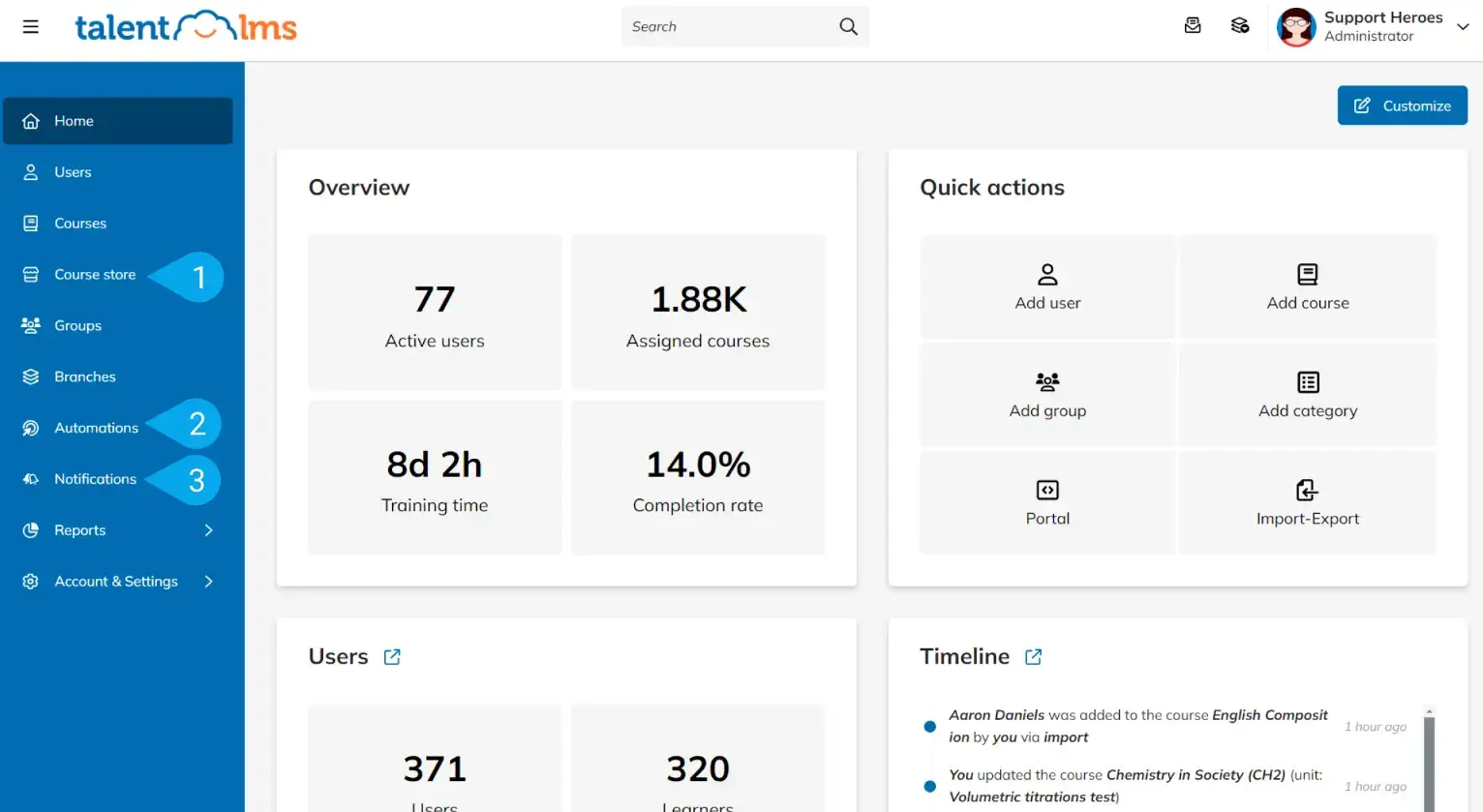
If you’re just getting started and you have a small team, you might want to check out TalentLMS. User-friendly and efficient for small teams, TalentLMS combines training tools with e-commerce features like payment gateways and gamification.
Best for: Selling lightweight training programs
Features: Stripe/PayPal integration, gamification, coupons, course catalog
Use cases:
Pricing: Free for up to 5 users, paid plans start at $109/month
*Pricing retrieved from TalentLMS in May 2025.
6. SkyPrep
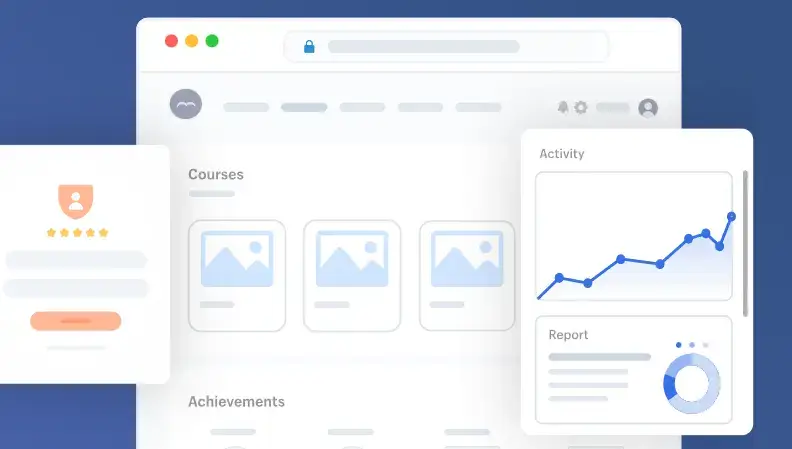
Looking for ease of use and a focus on compliance courses?SkyPrep provides just that while also including essential sales tools like course bundling, payment processing, and user permissions.
Best for: Compliance and certification-based selling
Features: Course bundles, secure checkout, certification tracking
Use cases:
Pricing: Custom pricing available upon request
*Pricing retrieved from SkyPrep in May 2025
7. Tovuti LMS
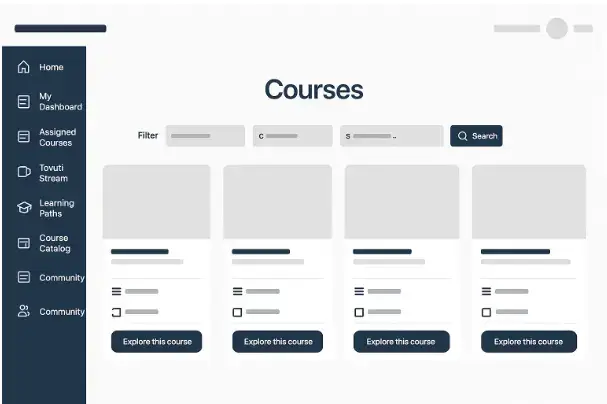
This ecommerce LMS offers an interactive learning environment for students without skimping.Tovuti LMS makes it easy to create and sell courses with engagement features like quizzes and digital marketing features like email marketing.
Best for: Selling structured and engaging training programs
Features: Sales tracking, live sessions, gamification, branded portals, email marketing, tools to engage customers
Use cases:
Pricing: Custom pricing available upon request
*Pricing retrieved from Tovuti LMS in May 2025
8. LearnDash
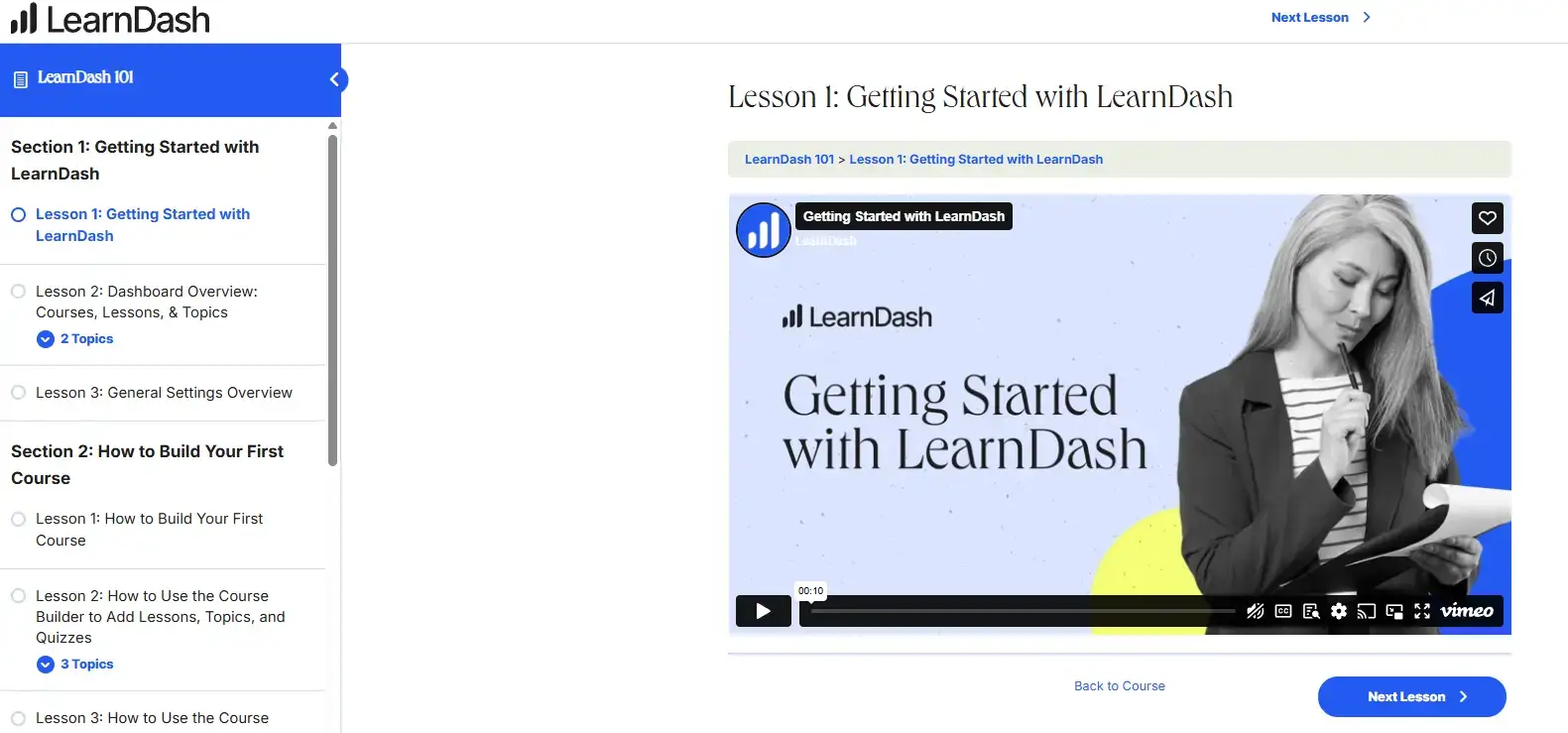
LearnDash is unique on this list in that it’s a WordPress-based ecommerce platform for online courses. It works with WooCommerce and Stripe to manage payments and subscriptions for course creators.
Best for: WordPress users who want customization
Key features: Drip content, payment plans, WooCommerce integration, search engine optimization (SEO) for websites
Use cases:
Pricing: Starts at $199/year for one site
*Pricing retrieved from LearnDash in May 2025
9. Skilljar
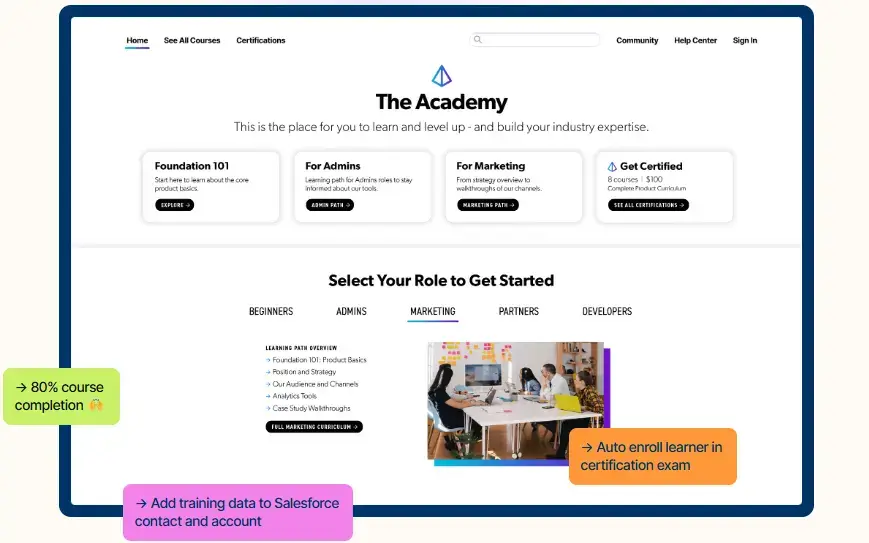
Skilljar is known for helping ecommerce businesses increase their product adoption through customer training. Skilljar supports advanced integrations and SEO, making it a strong fit for business-to-business (B2B) companies selling customer or partner education.
Best for: Customer and partner onboarding
Key features: SSO, CRM integration, multi-language support, analytics, detailed product listings for training programs
Use cases:
Pricing: Custom pricing available upon request
*Pricing retrieved from Skilljar in May 2025
10. Teachable

Teachable is an easy option for individuals with beginner course creation skills. It covers payments, taxes, and affiliate payouts without requiring third-party tools. If you want ecommerce software that will help you get up and selling courses quickly, you might want to look at Teachable.
Best for: Solopreneurs who want to create additional resources to monetize without needing complex skills
Key features: Built-in checkout, upsells, affiliate tracking, tax handling
Use cases:
Pricing: Starts at $39/month for basic
*Pricing retrieved from Teachable in May 2025
11. iSpring Learn
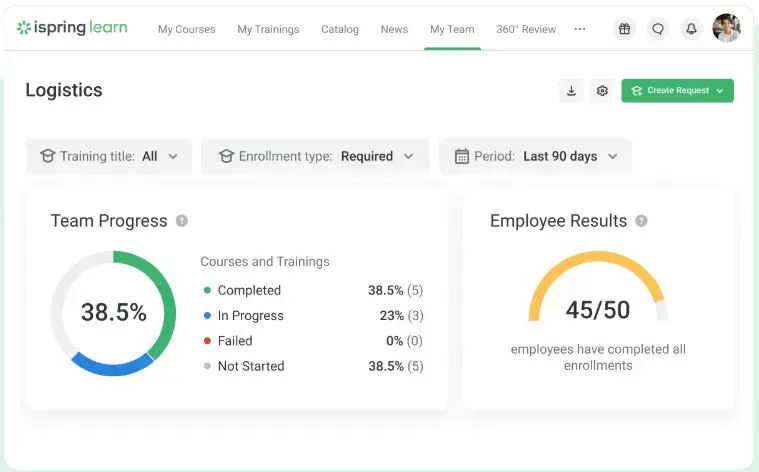
This LMS is nice for teams with existing content that need to launch and sell quickly.iSpring Learn covers your basics—like PowerPoint file imports, completion tracking, and external payments—without heavy customization.
Best for: Fast setup using prebuilt content
Key features: PowerPoint support, mobile-ready interface, learner analytics, track complete training
Use cases:
Pricing: Paid plans start at $6.70/month per user
*Pricing retrieved from iSpring Learn in May 2025.
Tips to succeed with ecommerce selling online courses
You know that old advice that if your product is good enough, it will sell itself? While that can be true, why leave things to chance? It can take a lot more than a solid course to make sales.
Here are some tips to set you up for success.
Test demand through pricing
It can take some trial and error to figure out the right pricing for your course. To give you a starting point, you could try offering a limited-time discount or conducting market research to gauge interest. Early pricing experiments can help you understand what your community is willing to pay, and their feedback can help you refine your messaging or adjust your offer before scaling it up.
Let’s hear Zachary Colman’s approach to course pricing: ’Most of our digital products are structured around pre-sale numbers. For example, we will price our courses and products at a low dollar amount for non-clients. If a client comes on, we offer those courses and products as part of our “VAULT,” which allows them to view them for free. That said, it allows us to utilize products for a retention and trust-building play.’
Zachary Colman, TEDx Speaker and Founder at Creatitive
Keep the checkout process clean
Every extra field or unclear button in your checkout flow adds friction. Keep it simple. The goal is to make paying feel like a natural next step, not a task. Have a few people go through it and watch where they pause. Oh, and don’t forget to test it on mobile.
Follow up after the purchase
Once someone buys, don’t go silent. A quick welcome email with clear next steps can make a big difference in how confident and supported a learner feels. It also sets the tone for their entire experience. You can use this first message to explain how to get help if they need it or even encourage them to share the course.
Focus your messaging on what learners will gain
When you write sales copy and course descriptions, talk about learner outcomes. Instead of listing “8 modules and 3 bonus PDFs,” use your marketing funnel to explain what learners will be able to do by the end.
Keeping it simple and clear for potential learners is another key factor, according to Kateryna Bykova: ‘I have designed my digital product subscriptions in a way that they can provide ultimate flexibility and value to my customers. I try to give them clear choices that fit their needs and budget. Therefore, I have created multiple monthly and annual plans to offer them the required flexibility, based on features or the number of users. I have kept the flat monthly fee for basic plans; however, I charge a little extra for advanced options(on a per-user basis).’
Kateryna Bykova, Marketing Content Director for AI-Enhanced Education, SEO, Research at StudyPro
Make refunds easy
A simple, well-communicated refund policy actually increases conversions by lowering the risk of buying. It also sends a message that you stand behind your work, and that helps build trust, even with people who never ask for a refund at all.
Why choose LearnWorlds over other ecommerce online training platforms?
LearnWorlds is built for those thinking beyond content delivery. It addresses common course creator challenges by combining design tools with the features needed to support selling, like built-in payments, checkout customization, affiliate management, and tax handling.
As an ecommerce education platform, it’s well-suited for creators offering professional training or enterprises expanding into online education as part of a broader digital marketing strategy. You can build out your course catalog and keep everything running from a single dashboard.
To see how LearnWorlds fits your ecommerce business, start yourfree trial today.

Ciera Lamb
Ciera is a freelance content writer and editor connecting companies with their ideal audiences through blog articles and other online content. She approaches her writing with curiosity and research and enjoys the ever-present learning that comes with being a content writer. She is also an avid scuba diver, an aspiring Dutch speaker, and lover of all things nature.
FAQ
Everything you have ever wondered, but were too afraid to ask...




